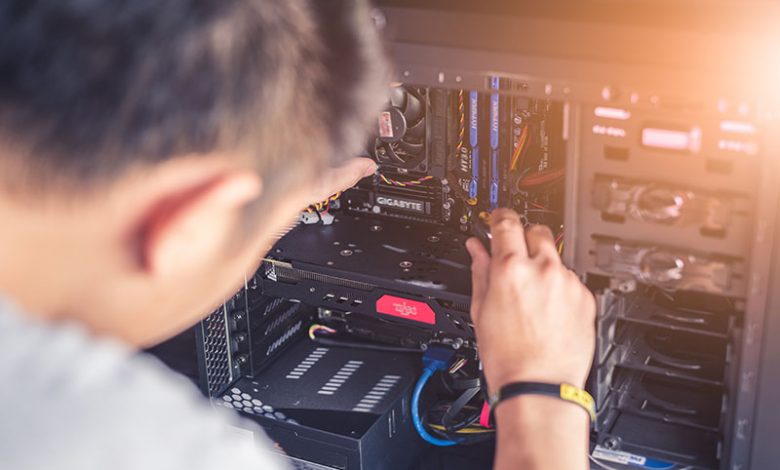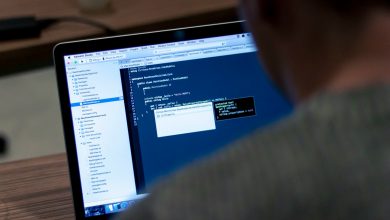Building Your Own PC vs Buying a Pre-Built PC - Plus Peripheral Device Considerations

The decision to acquire a new computer often leads to a pivotal choice: should you build your PC from scratch or opt for the convenience of buying a pre-built system? This dilemma poses a fundamental question that hinges on customization, cost, performance, and personal preferences. Building your PC allows you to tailor every component to your needs, ensuring unparalleled performance and a unique computing experience. On the other hand, pre-built PCs offer ready-to-use solutions, saving time and effort while potentially delivering competitive specifications. In exploring the pros and cons of both options, we delve into the intricacies of crafting a PC from individual components and the ease of acquiring a pre-assembled system. By weighing the advantages and disadvantages, you'll be better equipped to make an informed decision that aligns with your computing aspirations and demands.
Table of Contents
The Pros of Building Your PC
Building your PC configuration empowers you to create a computer that perfectly matches your performance demands, aesthetic preferences, and future aspirations. The level of customization, cost efficiency, and hands-on experience make this option appealing to those passionate about technology and seeking a genuinely unique computer. Here are the most common advantages you should consider:
- Customizability: One of the significant benefits of building a computer by yourself is the ability to customize your system entirely. Unlike pre-built models, you can choose and integrate components that suit your needs. Whether you need a powerful graphics card for gaming or a high-capacity hard drive for storing vast amounts of data, building your PC allows you to get precisely what you want.
- Better Price-to-Performance Ratio: Unlike buying a pre-built high-end workstation, building a PC can often provide a better price-to-performance ratio. The individual components typically have a lower markup price, which can lead to significant cost savings. This means you can get superior performance at a more affordable cost.
- Longer Individual Component Warranties: Another benefit is that individual computer parts often come with their warranties. These warranties typically outlast the standard warranty offered on an entire pre-built system, providing you with more extended coverage for your investment.
- Skill-Building Benefits: Building a computer from scratch comes with an educational advantage. You better understand how each part works together to create a functional system. This knowledge can be beneficial for troubleshooting issues, making future upgrades, or even building more computers.
... And the Cons
While building your PC offers numerous advantages, it's essential to be aware of the potential downsides and challenges related to technical expertise, time investment, compatibility, and potential pitfalls that come with this process. Here is what you should have in mind before embarking on self-assembling your PC:
- A Time-Consuming Adventure: One significant disadvantage of building a PC is the amount of time it can take. From researching the correct components and sourcing them at the best price to the assembly process, it can be challenging and time-consuming, especially for novice builders.
- Requires Specific Knowledge and Skill: Assembling a computer requires a specific set of skills and a good amount of technical knowledge. It's also essential to grasp compatibility issues between parts, the ability to troubleshoot potential problems, and the patience to deal with the intricacies of the build process. Without a proper understanding, a novice builder can easily make costly mistakes.
- Challenges in Finding Reliable Plans: Building a PC includes sourcing reliable and accurate information on creating the best system for your needs. Getting trustworthy advice and guidance can be difficult for potential builders, especially those without prior experience.
Buying a Pre-Built PC
For those who are not tech-savvy or don't have the time or will to build their PC, buying a pre-built model is a common choice with its advantages and disadvantages.
The Pros of Buying a Pre-Built PC
buying a pre-built PC offers convenience, simplicity, professional assembly, and warranties and support. If you prioritize a straightforward setup and immediate use and don't want to delve into hardware details, a pre-built PC can provide a reliable and hassle-free computing experience.
- Immediate Availability: Pre-built PCs are ready to use immediately, saving you time and effort. There's no need to assemble the parts or install the operating system. As soon as it arrives, you can start using it.
- Everything Included and Assembled: When purchasing a pre-built PC, all the necessary components are included and correctly assembled. This feature is particularly beneficial if you're new to computers and unsure about the difference between various components like CPU and GPU.
- Easy-to-Understand and Navigate Warranties: Pre-built PCs often come with comprehensive warranties from the manufacturer. These warranties are straightforward to understand and navigate if anything goes wrong. You can contact the manufacturer without having to pinpoint the faulty part yourself.
- Less Expensive for Basic Models: Standard pre-built PCs are usually less expensive than building your own if you use a basic model. Manufacturers buy components in bulk, and these savings often translate into lower consumer prices.
- Simple for Buying in Bulk (Office Environment): If you need to purchase multiple identical computers for an office, pre-built models make the process much simpler and more efficient. It takes away the hassle of building multiple units and ensures you get uniform systems for all staff members.
... And the Cons
Buying a pre-built PC might limit customization options, potentially include unnecessary components, and could cost more than building a similar system from individual parts. Additionally, you might have less control over component quality and future upgradability. Here's more on that:
- Limited Customization Options: One major downside to buying a pre-built PC is that you're limited in customization. You're restricted to the available models and specifications, which may not necessarily cover your specific needs or preferences.
- More Expensive for High-End Systems: As the performance requirements increase, so does the cost of pre-built computers. Compared to building your own, high-end pre-built PCs often come with a higher price tag, reducing the cost-effectiveness for performance users.
- Potential for Lengthy Repair Times: While pre-built PCs come with a manufacturer's warranty, if something does break, the repair process can take considerable time. This can lead to lengthy downtime, which can be particularly problematic if you rely heavily on your PC.
- Warranty Restrictions on Modifications: Although pre-built PCs come with warranties, these often come with strict restrictions on modifications. If you decide to upgrade or modify your system, you may void the warranty, leaving you without cover should anything go wrong.
Peripheral Device Considerations
You'll likely need to connect several peripheral devices when setting up your PC, whether a custom-built or a pre-built model. These can range from essential accessories like keyboards or monitors to specific tools like gaming equipment or media devices. Here is where the need for device drivers and support services for managing these peripherals arise.
Why Device Drivers Are Important
Device drivers are crucial for the optimal functioning of your peripherals. They serve as an intermediary between your system's operating system and the peripheral devices, enabling them to communicate seamlessly. These drivers instruct the operating system on how to interact with each device. Whether it’s a printer, scanner, microphone, special keyboard, or any other peripheral, the driver facilitates its function, making drivers an integral part of your computer setup.




